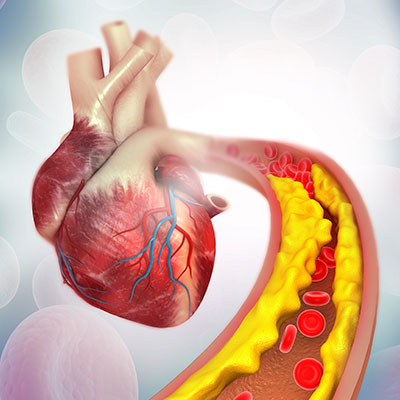Heart Health and Testosterone Replacement Therapy
Contents
- What Is Testosterone’s Relationship With Coronary Artery Disease and Atherosclerosis?
- Testosterone and Hypertension
- Testosterone and Congestive Heart Failure
- Testosterone and the Risk of Myocardial Infarction
- Does Testosterone Replacement Increase Your Risk of Cardiovascular Disease?
- Testosterone Use in Patients With Cardiovascular Risk Factors
Generally speaking, using testosterone to treat age-related testosterone deficiency does not increase a patient’s risk of developing cardiovascular disease.
The is a lot of confusion and controversy surrounding the use of testosterone replacement and the risk of a cardiovascular incident such as a stroke or heart attack.
In 2015, the U.S. Food and Drug Administration (FDA) updated its recommendations for testosterone and added a label warning to any prescription product that contained testosterone stating the possible increased risk of heart attack and stroke for men.
However, while the warning remains, since then, there have been many other studies that suggest the original studies that lead to the implementation of the warning label were flawed. There have even been studies since the regulation was put into place that indicates just the opposite, that in men with low testosterone replacement can actually lower their chance of having a cardiovascular event.
We feel that we can now confidently say that not only does testosterone therapy not increase your risk of stroke or heart attack, but it can actually decrease your chances of such cardiovascular incidents.
What Is Testosterone’s Relationship With Coronary Artery Disease and Atherosclerosis?

The links between being overweight and an increased risk of stroke or heart attack are well known, particularly since being overweight increases your risk of atherosclerosis, a condition marked by the buildup of fatty deposits in the coronary arteries known as “plaque.” This plaque buildup clogs the proper flow of blood to the heart and brain, and often a stroke or heart attack is the result.
Men with low testosterone are also at a greater risk of developing insulin resistance and type II diabetes. Diabetes also increases your risk of cardiovascular disease.
A recent meta-analysis found that there is a link between low testosterone in men and an increased risk of developing heart disease. The review published in the Journal of Clinical Endocrinology & Metabolism showed significant evidence suggesting a connection between low testosterone levels and heart disease. “When we reviewed the existing research into testosterone and cardiovascular disease, a growing body of evidence suggested a connection between the two,” study lead author Dr. Johannes Ruige of Ghent University Hospital in Belgium said in a journal news release.
Testosterone therapy does not increase your risk of heart attack or stroke.
Testosterone and Hypertension

Since testosterone replacement can help you to build muscle and burn fat, it lowers your BMI and therefore reduces your chances of being obese, which, like reducing your risk of stroke or heart attack, may help lower your blood pressure. However, unlike other forms of heart disease, there is a way that testosterone could, under certain conditions, cause an increase in blood pressure. Among its many benefits, testosterone replacement increases your production of red blood cells.
Additional red blood cells have many benefits, such as increased oxygenation in the blood, which can provide you with increased strength and energy. However, the increased production of red blood cells that results from testosterone injections could, in some men, cause a thickening of the blood. This blood-thickening could raise your blood pressure. Therefore, men on testosterone therapy must have their blood pressure carefully monitored.
If your blood pressure goes up consistently while on testosterone therapy and it is linked to blood thickening, you may need to donate blood periodically to avoid the condition.
Testosterone and Congestive Heart Failure
Congestive heart failure (CHF) is a condition that happens when your heart doesn’t pump blood as well as it should. When this occurs, blood often backs up, and fluid can build up in the lungs, causing shortness of breath. Certain heart conditions, such as narrowed arteries in the heart (coronary artery disease) or high blood pressure, gradually leave the heart too weak or stiff to fill and pump blood properly – these are the leading causes of congestive heart failure, sometimes referred to only as “heart failure.”
Since testosterone therapy may indeed reduce your risk of developing clogged arteries and other heart conditions that can precede CHF, it can reduce your risk of developing heart failure.
Furthermore, patients suffering from congestive heart failure have a lack of oxygen and, therefore, a limited capacity to exercise. This only makes the condition worse and increases their risk of dying from stroke or heart attack. A recent study published in the medical journal Heart found that testosterone replacement therapy can increase exercise capacity in patients with CHF and thereby help to increase their overall health and lower their risk of heart attack or stroke.
Testosterone and the Risk of Myocardial Infarction
Myocardial infarction is the medical term for a heart attack. When used as prescribed, for most patients, testosterone does not increase your risk of heart attack or myocardial infarction. Despite an overabundance of evidence to the contrary, it has been said that testosterone replacement therapy could increase the risk of having a heart attack.
Not only have many recent studies debunked this commonly held misconception, but the latest research also suggests that just the opposite is true – testosterone replacement can actually decrease a man’s risk of a heart attack.
The study, published in the European Heart Journal, found that increasing the testosterone levels in men with low testosterone who have suffered a heart attack helped to prevent a second heart attack or other cardiovascular issues.
Testosterone therapy decreases your risk of heart disease.
Does Testosterone Replacement Increase Your Risk of Cardiovascular Disease?

A 2015 study published by the world-renowned Mayo Clinic set the record straight on testosterone and the risk of heart disease or increased risk of a heart attack.
According to the study, published in the January 2015 edition of Mayo Clinic Proceedings, “evidence from research conducted around the world for several decades suggests a beneficial relationship between [testosterone] therapy and cardiovascular health.”
The lead researcher on this study was Dr. Abraham Morgentaler. Dr. Morgentaler is a well-known specialist in men’s health. Dr. Morgentaler published his first paper on testosterone in 1978. He has since become a recognized expert in the field and wrote the extremely popular book, Testosterone for Life in 2008.
This paper by Morgentaler was what is known as a “meta-analysis” It took a look at all of the studies on testosterone and the increased risk of cardiovascular disease between 1940 and 2014 and analyzed them in detail.
After intensively studying almost 75 years of published medical research, Dr. Morgentaler and his team found only four studies that seemed to indicate an increased risk of heart disease associated with testosterone replacement. However, they found “dozens of studies” that suggested just the opposite, that testosterone replacement can actually reduce the risk of cardiovascular (CV) disease and heart attack.
This led him to make only one inescapable conclusion – “In summary, there is no convincing evidence of increased CV risks with testosterone therapy. On the contrary, there appears to be a strong beneficial relationship between normal testosterone levels and CV health that has not yet been widely appreciated.”
Testosterone Use in Patients With Cardiovascular Risk Factors
Three of the main risk factors for developing cardiovascular disease are:
- Obesity
- Diabetes
- High Blood Pressure
- Stress
Testosterone replacement therapy does not increase these risk factors. In fact, it lowers each and everyone one of them. Clinical research has shown that there is a definite link between low testosterone and metabolic syndrome.
Metabolic syndrome is a group of disorders characterized by high blood sugar, high levels of “bad” cholesterol, high blood pressure, and obesity. It puts people at severe risk of death by cardiac arrest or stroke. Medical research has found that people, particularly men with low testosterone, are at a much greater risk of developing metabolic syndrome than men who have more normal testosterone levels.
Most of the risk factors for developing metabolic syndrome are related to obesity. Men with low testosterone tend to be overweight. In particular, they have an excess of belly fat. Also, men with low testosterone tend to also have one or more of the conditions associated with metabolic syndrome. Lack of lean muscle, and a decreased ability to burn fat, are two of the main symptoms of men with low testosterone. Therefore, it stands to reason that low testosterone can and does increase a man’s risk of developing metabolic syndrome.
Low testosterone increases your chances of developing heart disease or dying from a stroke or heart attack.
Now that you know a bit more about the vital role testosterone plays in heart health and the prevention of cardiovascular disease, why not contact us today? We would be happy to answer any questions or concerns you may have about testosterone replacement therapy.
FAQ
Can Testosterone Cause Heart Problems?
When used as prescribed for you by your doctor, testosterone injections should not cause any heart problems. Still, It’s recommended that if you’re a male taking testosterone, you should report any of the following conditions to your doctor and seek medical attention immediately, as they may be a sign of a heart attack:
- chest pain
- shortness of breath or trouble breathing
- weakness in one part or one side of the body
- slurred speech
Can Low Testosterone Affect Heart Rate?
Men with low testosterone usually have impaired blood flow to the heart, which can make the heart sluggish. Testosterone therapy has been shown to increase blood flow to the heart muscle by widening healthy coronary arteries, and in some cases, help to reduce the plaque buildup in arteries that is common in men with low testosterone. Testosterone also boosts heart muscle contractions which improves cardiac output.
Can Testosterone Injections Cause Heart Palpitations?
Because testosterone improves heart health, it can strengthen your heart and make it pump better. But this is a net positive of testosterone replacement. It can improve cardiac output and oxygenation for increased strength and stamina – but when used as directed, testosterone injection will not cause a rapid heartbeat or “heart palpitations.”
Will Testosterone Raise Blood Pressure?
Since testosterone therapy can increase your production of red blood cells, it could raise your blood pressure, but it cannot cause hypertension or "high blood pressure in otherwise healthy men, still, men on testosterone replacement need to have their blood pressure carefully monitored.
Does Testosterone Protect the Heart?
Yes, since testosterone replacement therapy can increase stamina, increase strength, increase your ability to exercise, help you to build muscle and burn fat, it has the net effect of protecting your heart from heart disease and improving your overall heart health.
Is Testosterone Replacement Safe For My Heart?
Not only is testosterone replacement safe for your heart, but there is also a growing body of evidence that suggests testosterone replacement therapy can improve heart health.
Testosterone has been shown to benefit heart health in many ways.
- It can reduce your risk of heart attack and stroke.
- It strengthens the heart muscle.
- It boosts metabolism.
- It helps you to build lean muscle.
- It lowers your risk of high blood pressure and diabetes.
- It provides more energy, which leads to more exercise, and a less sedentary lifestyle.
- Travis Goodale, MD, Archana Sadhu, MD, Steven Michael Petak, MD, Richard Robbins, MD
- Abraham Morgentaler, MD , Martin M. Miner, MD, Monica Caliber, MSc, Andre T. Guay, MD, Mohit Khera, MD, Abdulmaged M. Traish, PhD
- Elisabeth Wehr, MD, Stefan Pilz, MD, PhD, Bernhard O. Boehm, MD, Winfried März, MD, Tanja B. Grammer, Dr. Barbara Obermayer-Pietsch, MD
- Michael G Kirby, Geoffrey Hackett, Sudarshan Ramachandran
Testosterone Therapy and Cardiovascular Risk: Advances and Controversies
Low free testosterone is associated with heart failure mortality in older men referred for coronary angiography







